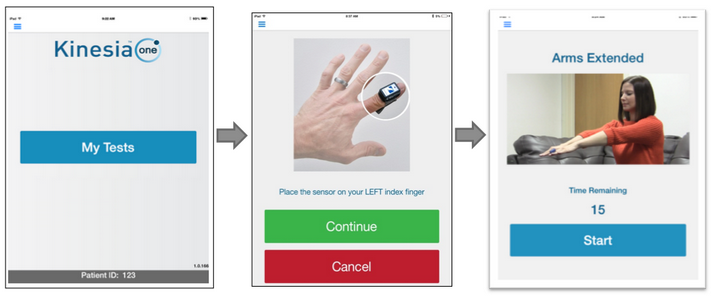20 JUL 2016: Valley View, OH – Great Lakes NeuroTechnologies (GLNT) has completed and published a clinical study validating that remote monitoring with wearable, objective measures can lead to an increased referral rate for advanced therapies in Parkinson’s disease. The study “Wearable Sensors for Advanced Therapy Referral in Parkinson’s Disease,” was recently published in The Journal of Parkinson’s Disease [ http://www.ncbi.nlm.nih.gov/pubmed/27392872 ]. The protocol followed 40 patients with Parkinson’s disease randomized into two groups for one year. The control group received standard care for assessing Parkinson’s disease, while the other used wearable, objective sensors (Kinesia™) in the home environment. For the Kinesia group, clinicians remotely viewed reports detailing motor symptoms and dyskinesia throughout the day via a web portal to aid in disease management decisions. The results demonstrated a clinician was 5 times more likely to recommend a patient for an advanced therapy such as deep brain stimulation (DBS) or an implantable medication pump when given access to objective, remote monitoring reports. The referral rate for the Kinesia group was 63.6% compared to 11.8% in the standard care group.

The study demonstrated that, when measured remotely, specific variables such as symptom severity and fluctuations of motor symptoms could provide key information to clinicians about when it was time to consider an advanced therapy. “An important reason we developed and validated our Kinesia technology was to give clinicians a window into what happens when individuals with Parkinson’s disease leave the clinic,” says Dustin Heldman, Biomedical Research Manager. “The results of this study are advancing our technology beyond the initial building blocks of algorithm validation and usability. We are now seeing the technology deployed and validated in targeted applications to help guide clinical decision making and improve patient care. Getting the right therapy to patients at the right time is one of those targeted applications, in which Kinesia can have a significant positive impact.” GLNT commercialized and validated Kinesia [ https://www.glneurotech.com/kinesia/ ] technology to provide wearable, objective and automated assessment of movement disorder symptoms. Dr. Heldman also thanked the NIH for their support of this technology development through the SBIR program.
About Great Lakes NeuroTechnologies
Great Lakes NeuroTechnologies [ https://www.glneurotech.com ] is committed to pioneering innovative biomed technologies to serve research, education, and medical communities, improving access to medical technology for diverse populations, and positively impacting quality of life for people around the world.
Media Contact
Maureen Phillips, 216-361-5410 – mphillips@GLNeuroTech.com
